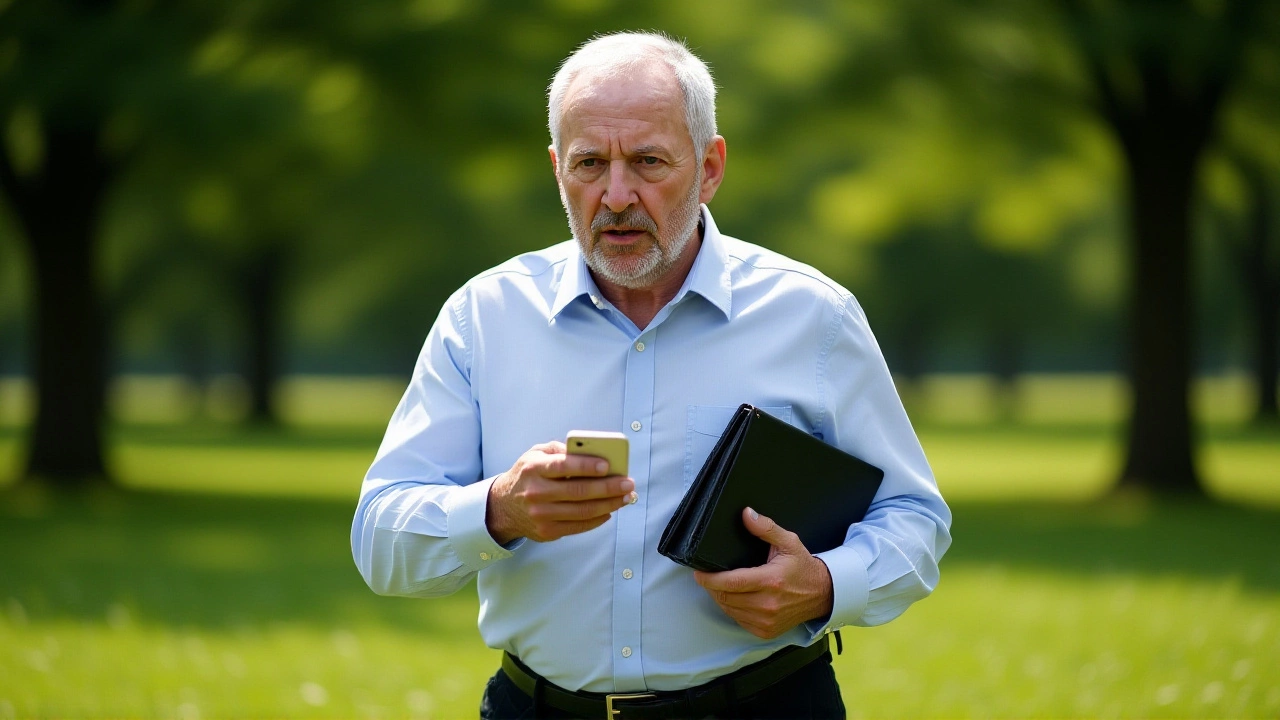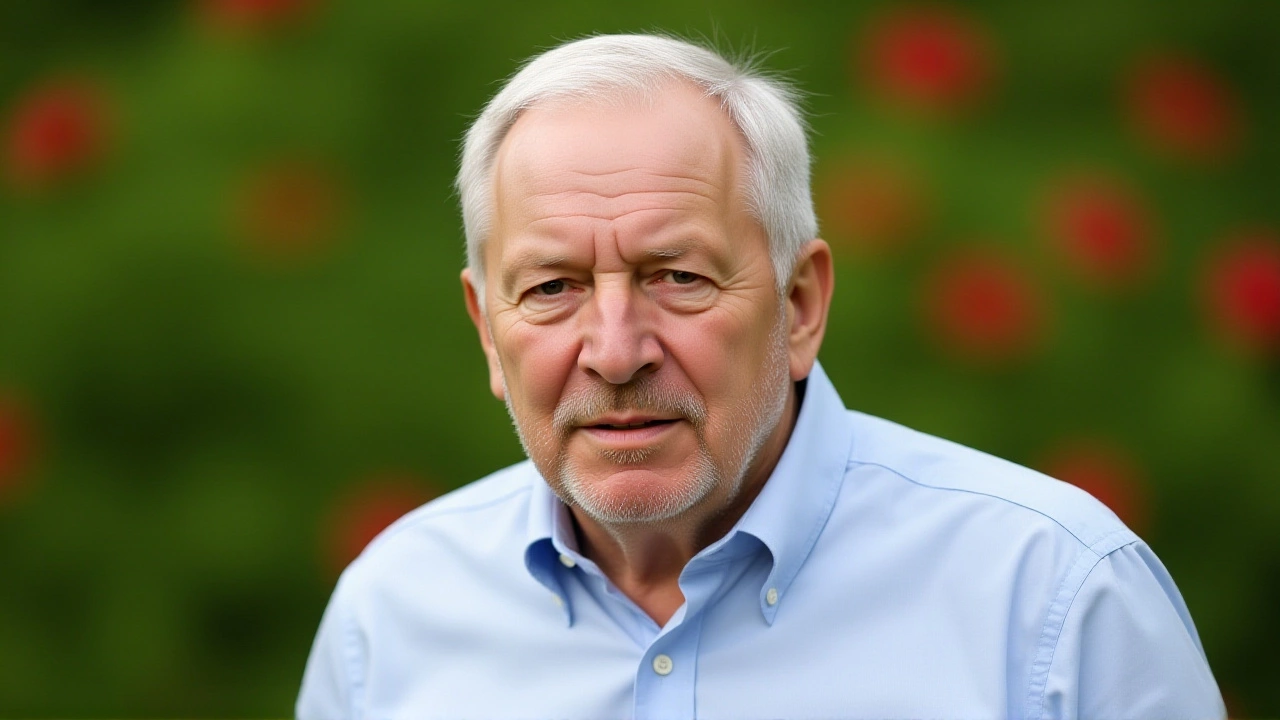
When Larry Summers sent a text to Jeffrey Epstein in March 2019 asking whether he should write a note to a woman he called a "mentee," he wasn’t just seeking romantic advice—he was crossing a line that would unravel his legacy. The email, made public by the House Oversight Committee on November 18, 2025, wasn’t an anomaly. It was the tip of a disturbing iceberg: over a decade after Epstein’s 2008 conviction, Summers had maintained regular contact with the convicted sex offender, even exchanging messages about dating, intelligence, and social dynamics—right up until Epstein’s arrest on July 6, 2019. Within 48 hours, Summers had stepped away from teaching at Harvard University, resigned from the OpenAI board, and severed ties with the Center for American Progress and Yale’s Budget Lab. The fallout wasn’t just professional. It was personal. And it’s still unfolding.
The Emails That Shattered a Reputation
The leaked correspondence, obtained through a court order following the Supreme Court’s refusal to hear Ghislaine Maxwell’s appeal in October 2025, revealed a pattern of chilling intimacy. On July 5, 2019, Summers emailed Epstein from his vacation on Cape Cod, describing a quiet evening by the water. The next day, Epstein was arrested on federal sex trafficking charges. The timing wasn’t coincidental—it was catastrophic. One exchange, reported by MS NOW, showed Summers asking Epstein whether it was "bad form" to pursue a romantic interest. Epstein’s reply? Encouraging, detached, almost clinical. Another email, quoted by The Prospect, read: "And then I said. Did u really rearrange the weekend we were going to be together because guy number 3 was coming … I dint want to be in a gift giving competition while being the friend without benefits." The language wasn’t just awkward—it was dehumanizing. Epstein, in turn, offered commentary on women’s intelligence, echoing the same controversial remarks that had cost Summers his presidency at Harvard in 2006.Apologies, But Too Late?
Summers’ initial response was measured. He told CNN’s Kaitlan Collins he was "deeply ashamed" and planned to "pause all public engagements." But he didn’t immediately step down from Harvard. It took a wave of public outrage—sparked by a student post on X (formerly Twitter) capturing Summers’ classroom apology on November 19, 2025—for him to fully retreat. "Some of you will have seen my statement of regret," he told his students, voice tight with emotion. "I express my shame with respect to what I did in communication with Mr. Epstein." His spokesperson confirmed he would not teach next semester, and his co-instructors would finish the remaining three class sessions. The apology, while sincere, rang hollow to many. "You don’t get to say you’re ashamed after you’ve already been having lunch with a predator for a decade," said one Harvard graduate student, speaking anonymously. "This isn’t a mistake. It’s a pattern."Political Fallout and a Presidential Directive
The scandal didn’t stay confined to academia. Within hours, Senator Elizabeth Warren (D-MA) called for Harvard to "sever ties with him entirely." Meanwhile, President Donald Trump seized the moment, directing the Department of Justice and the FBI to investigate Summers—and "several other prominent Democrats"—for potential complicity in Epstein’s network. The move, while politically charged, has real legal weight. As The Financial Express noted, the DOJ had previously declined to pursue third parties after former Florida Attorney General Pam Bondi concluded there was "no new evidence" warranting prosecution. But now, with a presidential order and fresh documents in hand, that calculus is changing. Legal analysts say the probe could reopen dormant investigations into donors, advisors, and academics who had contact with Epstein after 2008.Who Stood by Him? Who Turned Away?
Not everyone abandoned Summers. His longtime colleague, Jason Furman, former chair of President Obama’s Council of Economic Advisers, defended him during a WBUR panel, calling him "a good friend" and "brilliant." But Furman didn’t show up to the event himself—he canceled when the emails surfaced. That silence spoke louder than words. Meanwhile, the Harry Walker Agency removed Summers from its speaker roster. The Center for American Progress quietly deleted his bio. Even OpenAI, a company that prides itself on ethical AI, acted swiftly, announcing his resignation within 24 hours of the emails going public. The message was clear: in the post-Epstein world, association is liability.
What This Means for Harvard—and the Elite
This isn’t just about Larry Summers. It’s about the insulation of power. For years, elite institutions like Harvard have quietly tolerated relationships between powerful figures and controversial donors—even after criminal convictions. Summers’ case forces a reckoning: if a former Treasury Secretary, Harvard president, and Nobel-caliber economist can maintain ties with Epstein into 2019, who else has? The Harvard University investigation, now underway, will likely examine not just Summers’ emails, but the university’s own records of donor interactions and guest lectures. Could other professors be under scrutiny? Will donors be disinvited? The answer matters far beyond Cambridge. It’s about whether institutions will finally break the code of silence that protected predators for decades.What’s Next?
The Department of Justice probe is expected to expand beyond Summers. Sources close to the investigation say at least five other high-profile Democrats have been flagged for similar communications with Epstein or his associates. Meanwhile, Harvard’s board will meet in early December to decide whether Summers can return in any capacity—researcher, emeritus, or otherwise. And the public? They’re watching. Because if someone this influential, this respected, could be this blind—or this complicit—then who’s next?Frequently Asked Questions
How did the Epstein emails become public after so many years?
The emails were released after the Supreme Court declined to hear Ghislaine Maxwell’s appeal in October 2025, ending a legal blockade that had kept documents sealed. The House Oversight Committee then obtained court authorization to unseal files tied to Epstein’s network, which included thousands of emails previously hidden under claims of privacy or attorney-client privilege. This marked the first major release of Epstein-related documents since 2021.
Why did Larry Summers keep communicating with Epstein after his 2008 conviction?
Summers has not provided a clear explanation, but the emails suggest he viewed Epstein as a confidant in personal matters—dating, social dynamics, even intellectual debates. This mirrors the pattern seen in other Epstein associates, who often rationalized the relationship by separating his financial and philanthropic roles from his crimes. Experts say this cognitive dissonance is common among elites who benefit from access to powerful, wealthy figures—even those with criminal histories.
Is Larry Summers still employed by Harvard University?
Summers is currently on administrative leave while Harvard investigates his ties to Epstein. He will not teach in the spring semester, and his co-instructors are handling his remaining courses. His official status as a professor remains intact—for now. The university’s board will make a final determination by mid-December, weighing whether his continued affiliation damages Harvard’s credibility. Resignation is likely, but not guaranteed.
What’s the significance of President Trump directing the DOJ to investigate Summers?
While politically motivated, the directive gives the investigation formal authority and resources. The DOJ has historically avoided pursuing third parties in Epstein cases due to lack of evidence. But with new documents and a presidential order, prosecutors may now revisit financial records, travel logs, and communications between Epstein and Democratic donors or officials. This could trigger subpoenas for figures in academia, finance, and politics who were previously shielded by political loyalty.
Could other Harvard professors be implicated?
Yes. Harvard has already begun reviewing its donor records and guest lecture archives from 2005–2019. Several faculty members hosted Epstein at campus events or accepted funding from his foundation. One economics professor, whose name hasn’t been released, is known to have co-authored a paper with Epstein’s longtime associate. The investigation could expand beyond Summers, potentially triggering a broader reckoning within elite universities that benefited financially from Epstein’s donations.
What does this mean for future relationships between universities and wealthy donors?
This scandal is a turning point. Universities can no longer ignore the moral cost of accepting money from tainted sources. Harvard and Yale are already revising donor vetting policies to include criminal background checks and third-party risk assessments. Some schools may begin requiring public disclosures of all donor interactions. The era of "money is money" is ending—replaced by a new standard: if you associate with predators, you don’t belong on campus.